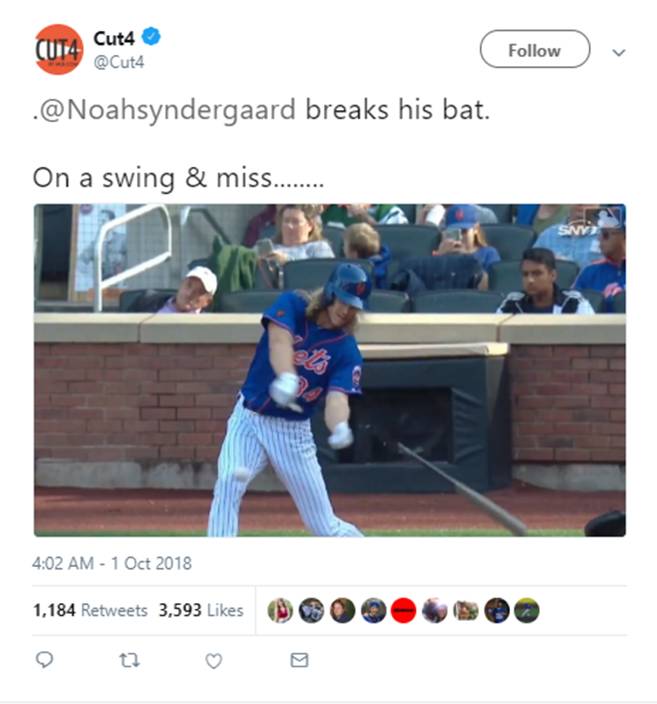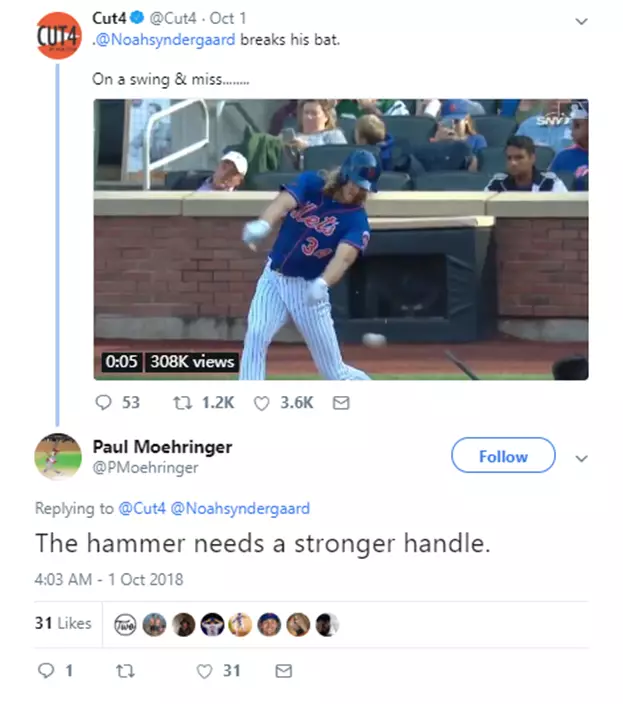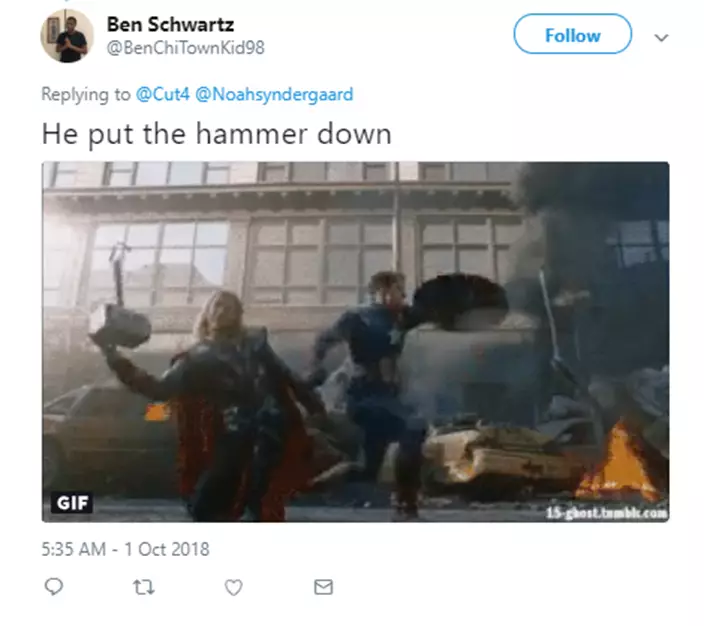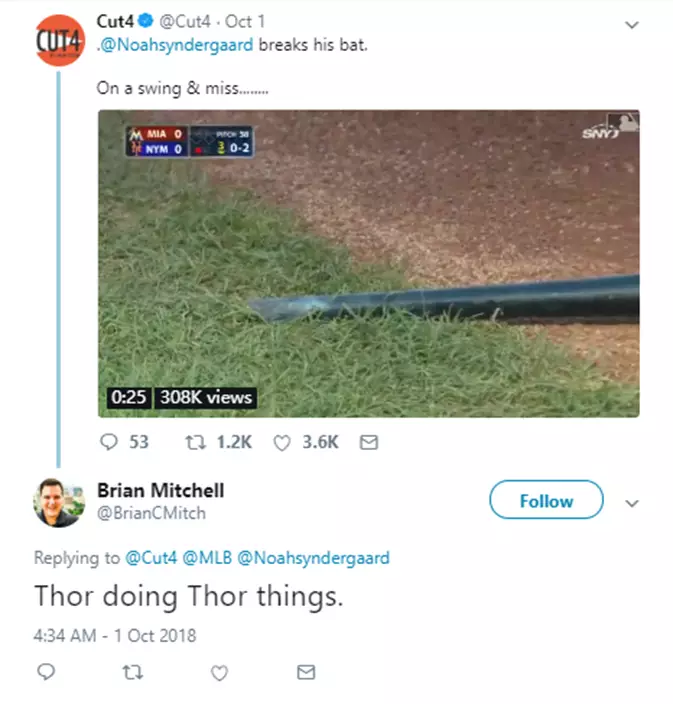SAN FRANCISCO (AP) — Ketel Marte hit two home runs, Eugenio Suárez added a three-run shot and the Arizona Diamondbacks used 13 hits to hold on and outlast the San Francisco Giants 8-7 on Wednesday.
Marte took Jordan Hicks (1-5) deep to right with a solo shot in the first inning and launched a two-run homer off Hayden Birdsong in the fourth.
Suárez’s homer came off Birdsong with two men on in the third. It was Suárez’s 13th HR of the season — the third baseman had a four-homer game against Atlanta on April 26.
On Wednesday, every member of Arizona’s starting lineup had a hit except No. 9 batter Jose Herrera, who walked twice.
Ryan Thompson (1-0) got the win in relief as Arizona had 12 strikeouts and the Diamondbacks took two of the three games in the series.
The Giants’ Heliot Ramos had three RBIs, including a sacrifice fly in the second and a two-run double in the fourth. Jung Hoo Lee hit a two-run homer in the seventh, his second in two games.
BREWERS 9, GUARDIANS 5
CLEVELAND (AP) — Rhys Hoskins homered and drove in five runs, Jake Bauers had two RBIs and Milwaukee beat Cleveland to avoid a series sweep.
Hoskins’ single in the three-run sixth plated William Contreras with the go-ahead score and his two-run homer in the seventh made it 7-2. He drove in two more in the ninth with a single for his fourth hit of the afternoon.
Bauers doubled in a run in the second and singled home Brice Turang in the sixth. The Brewers went 2-4 on a trip through Tampa Bay and Cleveland.
PHILLIES 2, CARDINALS 1, Game 1
CARDINALS 14, PHILLIES 7, Game 2
PHILADELPHIA (AP) — Bryce Harper had two hits and drove in the game-winning run, Jesus Luzardo pitched seven strong innings, and Philadelphia defeated St. Louis in the first game of a doubleheader.
Harper reached base three times in the game, but it was his bloop, two-out single that capped off a seventh inning rally for the Phillies.
Philadelphia entered the inning with only three hits but posted four singles in the seventh off Cardinals reliever Steven Matz (1-1) to score two runs. Bryson Stott tied the game on an infield single before Harper put the Phillies ahead two batters later.
Alec Burleson had a homer among his three hits and drove in four runs as St. Louis outslugged Philadelphia in the second game of a day-night doubleheader.
Burleson was one of three Cardinals to homer off Phillies starter Aaron Nola (1-7), who gave up the most hits in any start in his 11-year career, as St. Louis earned a split after losing 2-1 in the opener.
Lars Nootbaar and Masyn Winn also homered off of Nola, who allowed nine runs and 12 hits in 3 2/3 innings.
TWINS 6, ORIOLES 3, Game 1
TWINS 8, ORIOLES 6, Game 2
BALTIMORE (AP) — Kody Clemens hit a three-run homer in the eighth inning to lead Minnesota to their 10th straight with a victory over Baltimore in the second game of a doubleheader Wednesday.
Minnesota rallied from a 3-0 deficit to win the opener 6-3, then fell behind 6-4 before coming back in the second game. The Twins trailed by a run when Willi Castro led off the eighth with a single, stole second and advanced to third on a balk by Yennier Cano (0-3). After a walk to Royce Lewis, Clemens hit a drive to right to give Minnesota the lead.
Kody Funderburk (1-0) won in relief. Cole Sands pitched a perfect ninth for his first save.
The Orioles scored six runs in the third — thanks largely to a grand slam by Cedric Mullins and a solo shot by Heston Kjerstad — but managed no further scoring.
Trevor Larnach hit a two-run homer in the second for Minnesota. The Twins led 4-0 before Baltimore’s big third inning.
YANKEES 3, MARINERS 2
SEATTLE (AP) — Aaron Judge hit a go-ahead home run in the eighth inning as New York beat Seattle.
The Yankees trailed for most of the contest thanks to a couple strong plays from Seattle’s Julio Rodríguez. The Mariners’ center fielder robbed Trent Grisham of a leadoff home run and then drove in a pair of runs in the third inning.
Seattle starting pitcher Luis Castillo allowed one run on six hits over six innings. But the Yankees evened the score at two apiece in the seventh inning when Paul Goldschmidt delivered a pinch-hit, game-tying home run.
The stage was then set for Judge in the following inning, and MLB’s batting average and home run leader delivered. Judge got a slider from Carlos Vargas (1-3) and pounced.
Reliever Ian Hamilton (1-0) notched his first victory of the year and closer Luke Weaver earned his fourth save of the season.
TIGERS 6, RED SOX 5
DETROIT (AP) — Justyn-Henry Malloy hit a pinch-hit single in the ninth to end the game and give Detroit a win over Boston.
Aroldis Chapman (2-2) walked Andy Ibáñez to start the inning. Connor Wong threw the ball into center field as Ibáñez stole second, putting a runner on third. Malloy hit for Akil Baddoo and lined a single to center.
Alex Bregman homered in the fourth to put Boston up 2-1, but Detroit tied the game in the bottom of the inning.
Riley Greene’s two-run homer helped the Tigers take a 5-2 lead in the sixth, but the Red Sox drove Tarik Skubal out of the game with a three-run seventh.
Nick Sogard started the rally with a one-out single, then took second when Carlos Narváez snapped Skubal’s streak of 27 innings without a walk. Ceddanne Rafaela ended Skubal’s night with an RBI single, and Jarren Duran and Rafael Devers tied the game with RBI singles off Tyler Holton.
BLUE JAYS 3, RAYS 1
TORONTO (AP) — Alejandro Kirk hit a three-run home run in the sixth inning and Toronto beat Tampa Bay.
Brendon Little (2-0) got four outs for the win, Yariel Rodríguez pitched the eighth and Yimi García finished for his third save in six chances.
Kirk had two hits, and Vladimir Guerrero Jr. reached base three times and scored a run as the Blue Jays bounced back from Tuesday’s 11-9 defeat and won for the fifth time in six games.
Rays right-hander Ryan Pepiot (2-5) allowed three runs and six hits in six innings, extending his winless streak to three starts. He walked one and struck out seven.
Pepiot walked Guerrero to begin the sixth before striking out Anthony Santander and George Springer. Daulton Varsho singled and Kirk followed with a 407-foot homer to center.
WHITE SOX 4, REDS 2
CINCINNATI (AP) — Davis Martin pitched one-run ball into the seventh inning, and Chicago beat slumping Cincinnati for their season-high third consecutive win.
Lenyn Sosa and Michael A. Taylor homered as Chicago improved to 14-29 with its fourth victory in five games overall. The White Sox were 13-30 after 43 games in 2024, when they went 41-121 to break the post-1900 major league record for losses in a season.
Martin (2-4) allowed seven hits in a career-high 6 2/3 innings in his first win since April 11. The right-hander went 0-3 with a 3.86 ERA in his previous five appearances.
Mike Vasil handled the ninth for his first save in his 13th career game.
MARLINS 3, CUBS 1
CHICAGO (AP) — Kyle Stowers hit a pair of solo home runs and tripled, Ryan Weathers tossed five strong innings in his return to Miami’s rotation and the Marlins topped Chicago to end a three-game slide.
Agustín Ramírez also homered and doubled to help Miami avoid being swept at foggy Wrigley Field and win for just the fourth time in 17. Stowers homered for the second straight game to increase his season total to 10.
Seiya Suzuki homered for one of two hits off Weathers (1-0), who made his first start this season. The left-hander struck out five and walked one before exiting after 76 pitches. He strained his left flexor muscle during spring training, then rehabilitated it in the minors.
Four Miami relievers combined for four shutout innings. Jesús Tinoco tossed a 1-2-3 ninth for his fourth save after blowing a two-run lead Tuesday in Chicago’s 5-4 win.
Jameson Taillon (2-3) allowed three runs and four hits in six innings, struck out seven and walked none.
PIRATES 4, METS 0
NEW YORK (AP) — Matt Gorski and Jared Triolo each connected for a two-run homer off New York starter Clay Holmes, and Pittsburgh Pirates finally mustered some offense in a victory at rainy Citi Field.
Five pitchers combined on a six-hitter as the last-place Pirates (15-29) won for the fourth time in 17 games to prevent a series sweep. They’re 3-3 under Don Kelly, promoted from bench coach to manager when Derek Shelton was fired last week.
Rookie right-hander Chase Shugart (2-3) tossed 2 1/3 shutout innings in relief of wild starter Bailey Falter for his second career win. It was the fourth shutout this year for Pittsburgh, which has gone a franchise-record 20 games in a row without scoring more than four runs.
With slugger Juan Soto getting his first night off this season, the NL East-leading Mets were blanked for the second time.
ASTROS 4, ROYALS 3
HOUSTON (AP) — Jeremy Peña had a season-high four hits, capped by a tiebreaking RBI single in the eighth inning, to give Houston a win over Kansas City.
The Astros trailed by 1 when Zach Dezenzo singled with one out in the eighth and was lifted for pinch-runner Chas McCormick. Mauricio Dubón’s second double of the game dropped into the left field corner and scored McCormick, tying the game and chasing Michael Lorenzen (3-4).
Carlos Estévez took over and Peña lined his third pitch into left field, sending Dubón home and putting the Astros on top.
Josh Hader walked one in a scoreless ninth for his 10th save after Bryan King (1-0) threw a scoreless eighth for the win.
Isaac Paredes homered for a second straight game for the Astros after his shot in the ninth inning Tuesday night lifted them to the 2-1 win.
RANGERS 8, ROCKIES 3
ARLINGTON, Texas (AP) — Colorado lost to Texas to become the first team in baseball’s modern era to lose 36 of their first 43 games.
Wyatt Langford and Adolis García hit opposite-field, two-run home runs and Patrick Corbin struck out six consecutive batters among a season-high nine for the Rangers.
The Rockies became the first team to start 7-36 in the modern era (since 1901). They were swept for the seventh time and are 0-3 under interim manager Warren Schaeffer, who replaced Bud Black on Sunday.
The Rangers (23-21) have won five consecutive games to match a season-best winning streak.
PADRES 5, ANGELS 1
SAN DIEGO (AP) — Xander Bogaerts hit a three-run homer in the first inning and Randy Vásquez pitched six innings of four-hit ball in San Diego's victory over Los Angeles.
Manny Machado extended his hitting streak to 13 games with two hits and two walks as the Padres took two of three from the Angels.
Brandon Lockridge added a two-run single in the eighth for San Diego, which has won 10 of 14 to keep pace with the Dodgers in the NL West.
Taylor Ward homered for the Halos, who have lost 13 of 18.
Vásquez (3-3) produced his third straight solid start in May, striking out five with one walk.
Three Padres relievers combined on three hitless innings after the bullpen blew leads in five of its previous six games. Closer Robert Suarez rebounded from his horrific outing Monday with a 1-2-3 ninth.
NATIONALS 5, BRAVES 4
ATLANTA (AP) — James Wood’s eighth-inning double drove in the go-ahead run and Washington rallied to beat Atlanta and end their seven-game losing streak.
Atlanta led 4-1 after Bryce Elder allowed five hits and one run in six innings. The Braves were let down by their bullpen as Aaron Bummer allowed two unearned runs in the seventh before Enyel De Los Santos (1-2) lost the lead in the eighth.
Amed Rosario’s single drove in C.J. Abrams to tie the game. Wood added the double to right field off De Los Santos to drive in pinch-runner Nasim Nuñez with the go-ahead run.
Marcell Ozuna doubled in two runs on his bobblehead night for Atlanta.
Washington left-hander Mitchell Parker allowed four runs in 4 2/3 innings. Parker left the game after being hit on his left thigh by Austin Riley’s line drive.
Kyle Finnegan gave up a leadoff single by Drake Baldwin in the ninth before recording three straight outs for his 13th save.
DODGERS 9, ATHLETICS 3
LOS ANGELES (AP) —Pinch-hitter Miguel Rojas doubled in the go-ahead run in the sixth inning and Los Angeles hit four home runs while rallying past the Athletics.
Shohei Ohtani hit a 403-foot leadoff homer in the first and Andy Pages followed with a 417-foot shot on his first pitch in the second, giving the Dodgers a 2-0 lead.
The Athletics tied it in the third on Tyler Soderstrom’s two-run homer on the first pitch from Yoshinobu Yamamoto (5-3). They went ahead 3-2 in the fourth on Miguel Andujar’s RBI double to left.
Yamamoto allowed three runs and four hits in six innings. He struck out six.
The Dodgers tied it on Hyeseong Kim’s homer leading off the fifth, one of three homers given up by A’s starter Gunnar Hoglund (1-1). He allowed four runs and seven hits in 5 1/3 innings and struck out five.
In the sixth, Pages drew a leadoff walk and was thrown out at third on Michael Conforto’s single to left. Hogan Harris came in and gave up Rojas’ double to center.
The Dodgers tacked on five runs in the eighth, highlighted by Max Muncy’s three-run blast.

Arizona Diamondbacks catcher Jose Herrera, left, celebrates with pitcher Shelby Miller after the final out of a baseball game against the San Francisco Giants in San Francisco, Wednesday, May 14, 2025. (AP Photo/Jeff Chiu)
 "Check for termites!" one commentator said, before the other replied: "I don’t think it’s the bat, I just think it's Noah. He’s too powerful for this piece of lumber!"
"Check for termites!" one commentator said, before the other replied: "I don’t think it’s the bat, I just think it's Noah. He’s too powerful for this piece of lumber!"























































